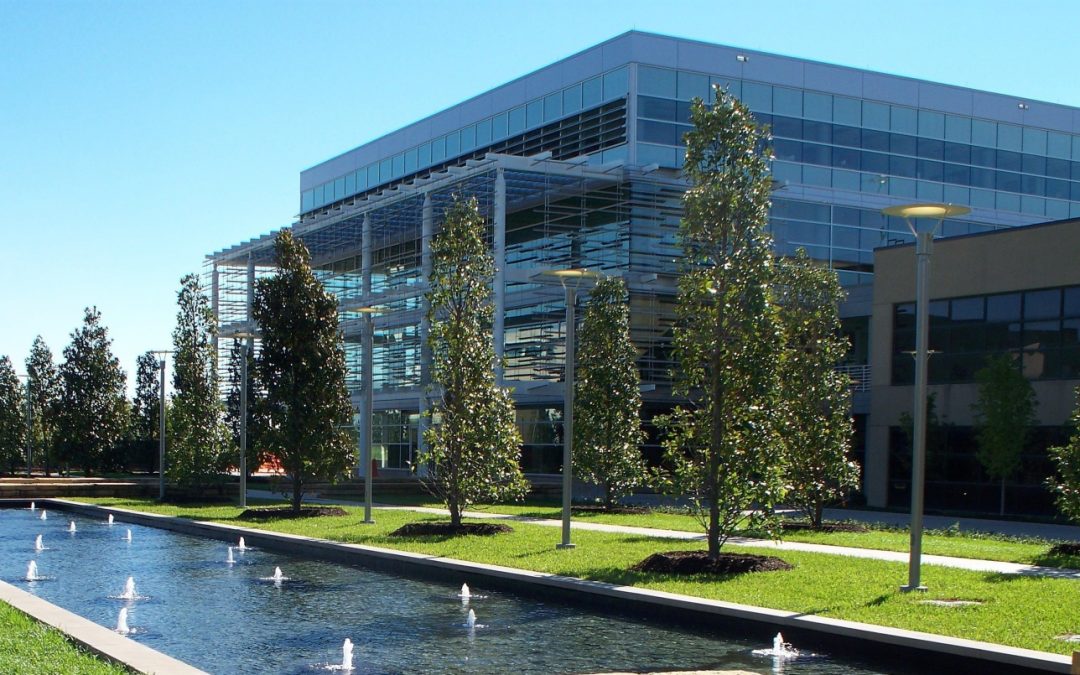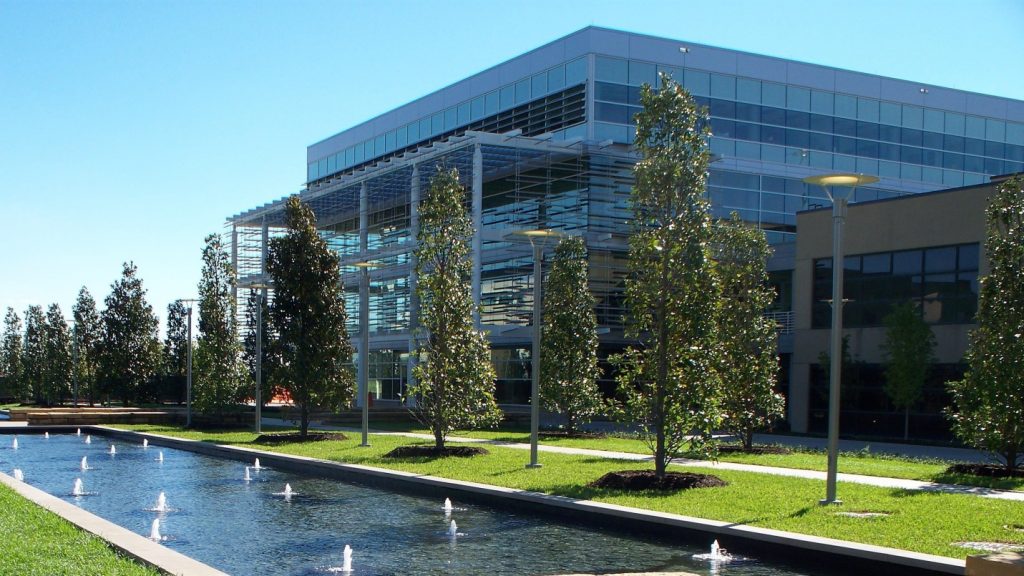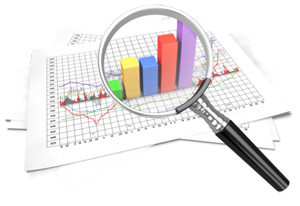
by Elizabeth Hines | Sep 1, 2015 | Big Data, Blog, Data/Analytics, Strategy, Supply Chain
 Many organizations that jumped on the big data bandwagon have struggled to turn their new, boundless collection of data into actionable business information. As consultant Rich Sherman of Athena IT Solutions puts it, today’s businesses are struggling with “the transformation of data into information that is comprehensive, consistent, correct and current.”
Many organizations that jumped on the big data bandwagon have struggled to turn their new, boundless collection of data into actionable business information. As consultant Rich Sherman of Athena IT Solutions puts it, today’s businesses are struggling with “the transformation of data into information that is comprehensive, consistent, correct and current.”
Enter data governance programs, and, consequently, the data steward. Technology cannot always extract the most useful data, but the data stewards can, meaning the success of the data governance program rests to a large degree on their shoulders. But data stewards can be viewed with suspicion by other employees and nothing can kill the spirit of hard work more than distrust or a feeling that management is snooping and ready to pounce at the sign of even the slightest misstep.
Some business users are under the impression data stewards have been tasked to play dual roles, championing the organization’s data governance program while also using their position to crack down on anyone stepping out of line. To some, the data steward is really a data cop who “police” rather than manage the organization’s critical data elements. They believe anyone can be caught in the net cast by the data stewards as they fish for out-of-compliance data and bring it into line with policy or regulatory obligations. This can create needless friction within the organization and threaten the effectiveness of data efforts altogether. We can’t ignore concerns caused by the growing presence of data stewards at many organizations; in fact, it makes it even more important to show why such concerns are generally unfounded.
While it is true data stewards are indeed tasked with ensuring compliance with the policies and processes of the data governance program, critics need to bear the end goal in mind – to turn massive amounts of data into a useable corporate asset. And data stewards themselves can actually play a role in the effort to help “to take the view of data governance from police action to harmonious collaboration,” as another expert, Anne Marie Smith of Alabama Yankee Systems, LLC, put it. It won’t hurt for the data stewards – or the data governance managers – to acknowledge some employees will initially question their intentions. However, by reaching out to each business unit and explaining how data governance works and why improved data management will benefit the organization, the distrust can dissipate. Similarly, if the data steward is recruited from within the organization, it will alleviate some concerns since business users are more likely to trust a familiar face.
The complexity of data governance comes with a host of pitfalls – fears of data cops shouldn’t be one of them. What’s been your experience with data stewards in the supply chain? Do they play an important role in your organization?

by Elizabeth Hines | Aug 31, 2015 | Blog, Strategy, Supply Chain, Warehousing & Materials Handling

Going green in the warehouse is no longer an afterthought, but a necessity to boost the bottom line. With the US Green Building Council reporting nearly 172,000 gross square meters being certified LEED (Leadership in Energy & Environmental Design) every day in the U.S., it speaks volumes about the widespread industry acceptance of sustainable design.
Once an afterthought, the “greening” of warehouses and distribution centers has emerged as one of the most effective tools to boost the bottom line. With so many external pressures on profit margins, energy savings have the potential to provide that much sought-after way out. Needless to say, we have moved well beyond simply dimming or turning off the lights (although not to be neglected).
If you have not considered such increasingly common green features such as white roofs to reflect sun light, prismatic lenses for skylights, solar panels, and high-efficiency lighting, you should know others are moving ahead.
A one-million square-foot distribution center in Fort Worth, Texas, for example, where temperatures frequently hit triple-digits, hardly needs to turn on the HVAC since the company installed an integrated fan control system, which uses 26 networked warehouse fans 24 feet in diameter. Designed to move high volumes at low speeds to cool indoor temperatures, it operates to the tune of 12% to 50% savings in heating and cooling costs.
Another example is the corporate campus of Somerset Tire Service in Bridgewater, N.J., which is constructed as a net-zero facility, by using a roof-mounted, 1.2 megawatt photovoltaic array. In less than five years, the system will have paid for itself.
And, to cite a third example, consider a recently completed building for Coca-Cola where clear glass brings in an abundance of natural light. In combination with integrated daylight tubes, which automatically reduce or turn off when the sensors determine there is enough ambient light, the facility can frequently operate without any artificial lighting.
Optimizing the building envelope and lighting solutions can yield as much as 40% in energy savings. Lighting is indeed the low-hanging fruit of going green, especially if your lighting system is pushing 20 years. Other common strategies such as dimming, occupancy sensing, and scheduling can be combined with more advanced lighting control strategies such as daylight harvesting (as in the Coca-Cola example), task tuning (light is adjusted depending on the needs of the space), demand response (light is adjusted at peak times based on signals from electric utilities), and specific software for energy management. These strategy combinations can save up to 70% in energy costs.
But let’s not forget that the good-old “location, location, location”. It’s ever-important as well.
One analyst put it this way: “Anytime you can reduce transportation distance, time, and costs for your network, you are also providing a green benefit… While there is much that can be done within a warehouse to save energy, optimizing the network is where some of the biggest bang for the buck can be found.”
When it comes to cutting energy costs in warehouses and distribution centers, where do you see the greatest potential for savings?
Fronetics Strategic Advisors is a leading management consulting firm. Our firm works with companies to identify and execute strategies for growth and value creation.
Whether it is a wholesale food distributor seeking guidance on how to define and execute corporate strategy; a telematics firm needing high quality content on a consistent basis; a real estate firm looking for a marketing partner; or a supply chain firm in need of interim management, our clients rely on Fronetics to help them navigate through critical junctures, meet their toughest challenges, and take advantage of opportunities. We deliver high-impact results.
We advise and work with companies on their most critical issues and opportunities: strategy, marketing, organization, talent acquisition, performance management, and M&A support.
We have deep expertise and a proven track record in a broad range of industries including: supply chain, real estate, software, and logistics.


by Elizabeth Hines | Aug 20, 2015 | Blog, Content Marketing, Leadership, Marketing, Strategy

All executives understand the significance, for their company and for their career, of creating and implementing strategy. Because of the significance of strategy, and because strategy forces executives to confront the future, many find it scary.
Savvy executives understand that not all business challenges can be resolved from inside their organization. Savvy executives rely on external experts or strategic advisors to know their internal business, know the external marketplace, and have the domain expertise to combine this knowledge into strategies that will work for today and the long term.
If you have ever thought about getting some help from the “outside” but weren’t sure of the value it would create for you and your organization?
Here are 5 reasons why you should use a strategic advisor:
1. Strategic Advisors fill the “holes” in an organization that exist in a particular discipline, experience level, or accumulated knowledge base. As a result, they can speed decision making, time to market, or cost reductions with proven solutions and without the pain of trial and error.
2. Strategic Advisors offer a viewpoint based on facts and real experiences; not on politics or prejudice. The advice they can offer is “agenda free”. Yes, the truth sometimes hurts, but savvy leaders know that the intellectual honesty that a strategic advisor brings drives innovation and growth.
3. Strategic Advisors know when to stretch the targets. Whether cost reduction, sales growth or both. They have the experience to know when to step on the gas and when to apply the brakes…without driving you off the road. Their external expertise can put you and your team in a position to be successful for the short and long term.
4. Strategic Advisors are always “up to speed”. They have a niche, know it well, and spend time and resources keeping abreast of the trends and the companies driving those trends. This “multiplier-effect” cannot be duplicated internally without a significant addition to headcount and expense.
5. Strategic Advisors are extremely cost effective. They allow you to buy the highest level of experience, personal network and know-how, applied to your toughest challenges, for just the right amount of time.
Combining the best from inside your organization with the brightest from the outside is a winning formula. Smart business leaders solve this equation time and time again and reap the benefits listed above.
Fronetics Strategic Advisors is a leading management consulting firm. Our firm works with companies to identify and execute strategies for growth and value creation.


by Elizabeth Hines | Aug 19, 2015 | Blog, Data/Analytics, Strategy

Understanding your financial metrics at a granular level is important in that it allows for a true understanding of what is happening, and what is not. It enables you to drill down and appreciate, for example, similarities, differences, and outliers. Being informed at a granular level enables better decision-making when it comes to determining how to increase profits. How often does one need to look at these metrics and how does one evaluate and react to numbers?
The frequency with which to look metrics depends upon the area of business. For example, inventory flows and manufacturing output should be looked at on a daily basis. Your sales pipeline, on the other hand, should be looked at on a weekly basis, and your financials should be looked at monthly.
Once a schedule has been established, the question is what to do with the data – how should the data be evaluated and when is it time to act? The reality is that there is no hard and fast answer to this question. When to act is dependent upon the type of business, its typical cycle, and the company itself. It is therefore important to develop a database that captures your metrics. This database should be updated with the same frequency that the data is collected (see above for suggested frequency). A historical database will enable you to quickly identify a data point that is deviating, positive or negative, from the historical. When this happens, it is time to act.
Fronetics Strategic Advisors is a leading management consulting firm. Our firm works with companies to identify and execute strategies for growth and value creation.
Whether it is a wholesale food distributor seeking guidance on how to define and execute corporate strategy; a telematics firm needing high quality content on a consistent basis; a real estate firm looking for a marketing partner; or a supply chain firm in need of interim management, our clients rely on Fronetics to help them navigate through critical junctures, meet their toughest challenges, and take advantage of opportunities. We deliver high-impact results.
We advise and work with companies on their most critical issues and opportunities: strategy, marketing, organization, talent acquisition, performance management, and M&A support.
We have deep expertise and a proven track record in a broad range of industries including: supply chain, real estate, software, and logistics.


by Elizabeth Hines | Aug 17, 2015 | Blog, Leadership, Strategy

Although our economy has rebounded since the 2008 downturn we have come to realize that the days of abundant resources are gone. Our current and future economic reality consists of scarce resources and a shrinking opportunity base. Managers face the challenge of expanding their business and reducing their spending, while still making meaningful progress now and into the future.
Whether you are a small, mid-market, or Fortune 500 company, you will recognize the challenge of reconciling your management needs in the face of budget reductions. Doing things the same old way is not effective. You need a way to quickly turbo charge your business without breaking the bank. The question remains — how? Leading companies have used a secret weapon against these challenges for years: interim management services strategy.
Here are 4 questions to ask yourself to determine if interim management services are right for you:
- In your current or last budget cycle have you been asked to raise your profit targets with flat or reduced expenses?
- Do you have a customer or market segment that is a good fit for your company, but you don’t have the resources or time to explore, define and win that business?
- Do you need management expertise in a specific area, but don’t want to make a full time hire or can’t afford to make one?
- Do you have a window of opportunity to make a meaningful business move but can’t afford the ramp up time or learning curve to make the most of it?
If you answered yes to any of the above questions, an interim management services strategy is a weapon you should think about using too. Think of it as “management as a service”. A model designed to provide specific executive, management, sales or operational expertise when and where you need it, for exactly as long as you need it, at a fraction of the time and cost expense of hiring, assimilating and assigning a full-time professional.
Interim management services allow you to make meaningful progress in your strategic initiatives without incurring a large upfront investment in time, people, or budget. It allows you to easily navigate unique challenges, fill leadership voids during transitions, or obtain expertise on special projects and initiatives. It’s effective and efficient talent, when you need it, for how long your needs exist.
Add an interim management strategy to your strategic arsenal and watch your business grow.
Fronetics Strategic Advisors is a leading management consulting firm. Our firm works with companies to identify and execute strategies for growth and value creation.
Whether it is a wholesale food distributor seeking guidance on how to define and execute corporate strategy; a telematics firm needing high quality content on a consistent basis; a real estate firm looking for a marketing partner; or a supply chain firm in need of interim management, our clients rely on Fronetics to help them navigate through critical junctures, meet their toughest challenges, and take advantage of opportunities. We deliver high-impact results.
We advise and work with companies on their most critical issues and opportunities: strategy, marketing, organization, talent acquisition, performance management, and M&A support.
We have deep expertise and a proven track record in a broad range of industries including: supply chain, real estate, software, and logistics.


 Many organizations that jumped on the big data bandwagon have struggled to turn their new, boundless collection of data into actionable business information. As consultant Rich Sherman of Athena IT Solutions puts it, today’s businesses are struggling with “the transformation of data into information that is comprehensive, consistent, correct and current.”
Many organizations that jumped on the big data bandwagon have struggled to turn their new, boundless collection of data into actionable business information. As consultant Rich Sherman of Athena IT Solutions puts it, today’s businesses are struggling with “the transformation of data into information that is comprehensive, consistent, correct and current.”






